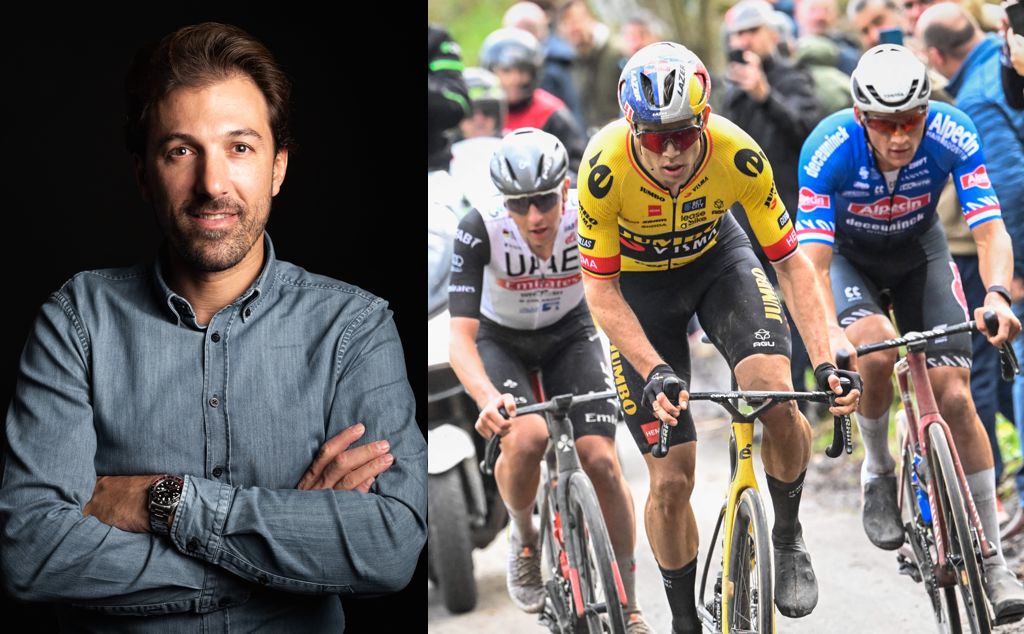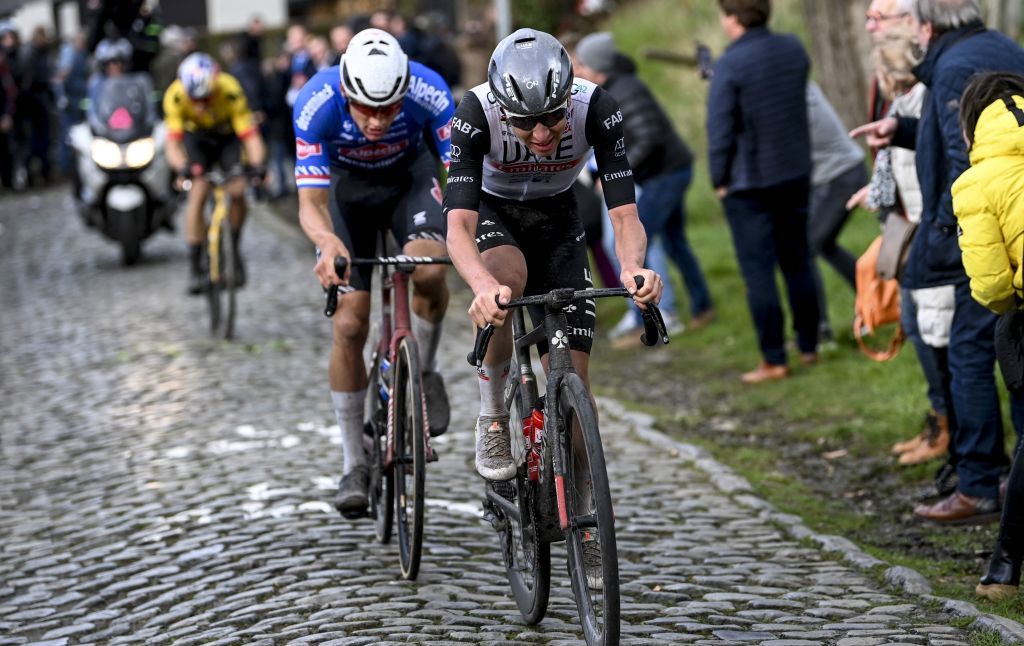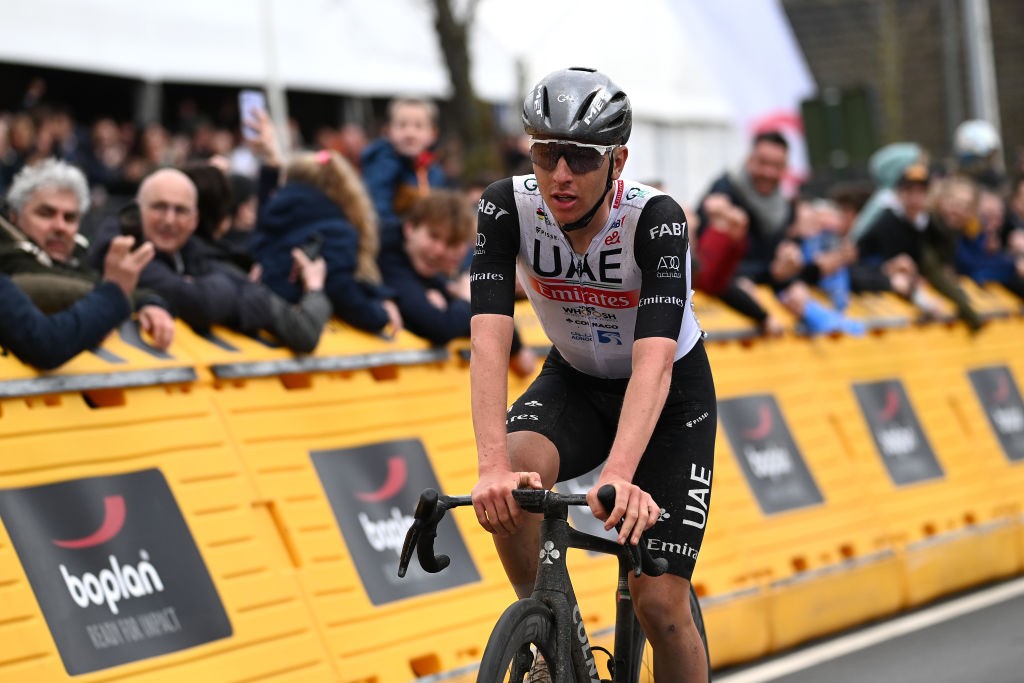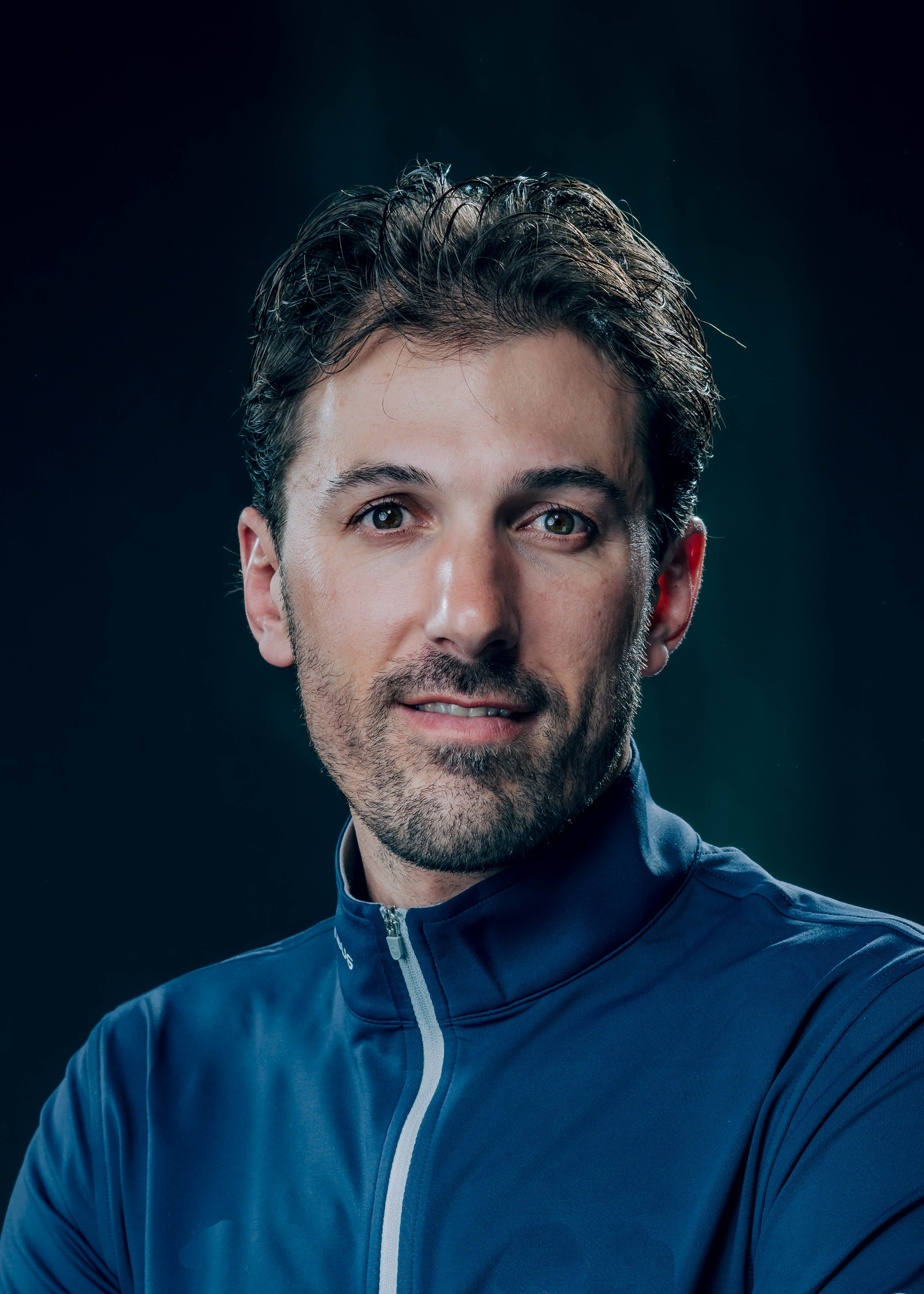Fabian Cancellara's Classics column - Wout van Aert sits Mathieu van der Poel down to turn weakness into strength
Our expert analyst dissects E3 Saxo Classic, poring over the sprint finish and asking: what kind of rider is Tadej Pogacar?

On Belgian television, Renaat Schotte asked Wout van Aert if the podium at the E3 Saxo Classic was the most beautiful in the history of the race. His response was class: "As long as I'm in the middle, yes." I can remember some beautiful podiums in Harelbeke myself... but it has to be said, this one was special.
In Wout Van Aert, Mathieu van der Poel, and Tadej Pogačar, we have three amazing riders, all in different ways, and they are bringing so much value to the Classics.
My conclusion is that E3 was interesting to a certain point, then it became boring, then it became interesting again, then boring, and then it was a nice sprint. Since it was so intense in the middle part, there were no big fireworks at the end, but it was still quite special to see three riders like that up there on that level.
Let's start at the end. The key to the sprint was that they didn't slow down too much. Tadej took them in at quite a high pace – there was a tailwind, too – and then opened the sprint with more than 200 metres to go. That kind of sprint will always suit Wout van Aert.
E3 Saxo Classic: Wout van Aert wins battle of titans in Harelbeke
'Don't kill cycling' - Jumbo-Visma defend Wout van Aert chain lube in E3 finale
Mathieu van der Poel undeterred after E3 Saxo Classic loss to Wout van Aert
Cancellara’s Classics column: Perfect Opening Weekend creates a luxury problem for Jumbo-Visma
Mathieu cannot go with the biggest gears. Where he's at his best is when it starts from a lower speed, with low gears, and then he accelerates like hell. No one can match his change of pace from a low speed. We saw this at the Cyclocross World Championships recently and, as I wrote about 12 months ago, we saw it at the last Tour of Flanders.
Here, it looked like the sprint opened at too high a speed, and then he ran out of room for acceleration. He couldn't make the difference anymore. Wout, on the other hand, is more of a pure sprinter, and when he has a certain speed he can maintain it for longer.
What was also interesting to me was that Van der Poel gave up in the sprint. OK, you cannot call it giving up, but he had to sit up, shake his head, and watch Van Aert celebrate. Let me tell you, these little things can make a big difference psychologically.
Get The Leadout Newsletter
The latest race content, interviews, features, reviews and expert buying guides, direct to your inbox!
Maybe Mathieu was too confident. He opened the race early and made another nice attack on the Stationberg, where no one usually goes. He showed balls once again. But after that the only one attacking was Tadej, so maybe he was too sure he'd win in a sprint.
I think Van Aert will have taken a lot of confidence from this. Let's not forget, his direct record against Van der Poel has not been good in recent years, especially in sprints. There was the sprint he lost in Flanders in 2020, then the same thing happened at Cyclocross Worlds last month, and let's not forget Mathieu winning Milan-San Remo last weekend.
You could say it was 3-0, but now it's 3-1.
Wout's weakness

It's easy to forget that Van Aert was in fact distanced on the Oude Kwaremont, and that can never be a good thing. He definitely wasn't playing; if he could have followed, he would have done.
However, I wouldn't be too worried about his shape. He showed some weakness, but I think he can get over it with this win.
I've been following Van Aert's training on Strava with interest. In the four weeks between Cyclocross Worlds and Tirrreno-Adriatico, it was something like 8 hours, 16 hours, 31 hours, 25 hours. I'm no data analyst but to me it looked like quite a good workload, especially considering he was sick at the start of that and lost some precious time.
And that's the thing with Van Aert; he's the guy who's still coming up. There's a difference between being up there and coming up there. Mathieu, since last week, is clearly up there. Tadej has been up there for a long time already. Wout is still coming up.
He can only get better now, and that could yet be his advantage at the Tour of Flanders. You cannot make big progress between Harelbeke and Flanders but if you do some nice finishing training or racing it's still possible to add that little bit of top-end to your condition.
I believe Wout is missing that last little thing, but maybe with this win, he will get that for next weekend.
Is Pogacar a Grand Tour rider?

The other thing that stood out to me was Tadej Pogačar, and I'm wondering what kind of rider he is. Do we still consider him a Grand Tour rider – yes or no? That's my question. It's a question generally, not just for this article, and it's as much a question for you, the readers.
I have never seen a Grand Tour rider attacking like this at the Classics. Would we see Jonas Vingegaard doing what Tadej did today? No chance. The last rider to win Harelbeke and the Tour de France was Geraint Thomas but he had to make choices and specialise in a certain area.
Tadej's style is just non-typical for a Grand Tour rider – this way of moving around, of powering over the cobbles, of forcing so hard on the climbs. He is a natural. To me, he looks more like a one-day Classics rider than a Grand Tour rider at the moment.
So the question is... is Tadej going full gas to all these races because in summer he sees he has trouble with the heat and the long mountains compared to his competition, which is Jonas Vingegaard. Does he just love doing these races? Does he see it as just another chance to win races?
I raced to win bike races and this is the same as what he does. I have a lot of respect for that.
Whatever kind of rider he is, he is good for the sport.
Fabian Cancellara is an ex-professional cyclist who raced from 2001 to 2016 for Mapei, Fassa Bortolo, CSC and Trek. One of a select trio of riders to have won Paris-Roubaix and the Tour of Flanders three times, alongside arch rival Tom Boonen and Johan Museeuw, he is the only racer who can add the Strade Bianche triple to that glittering statistic – first across the line in Siena at four year intervals between 2008 and 2016."Spartacus" was also a formidable time trialist: four times world champion, twice Olympic champion, his final race as a professional cyclist came in the TT at the Rio Olympics in 2016, where he triumphed over second-placed Tom Dumoulin by a staggering 47 seconds. Alongside various business interests – and being a Cyclingnews columnist, of course – Cancellara is a founder of the Tudor Pro Cycling team, currently racing at UCI Pro Team level.
